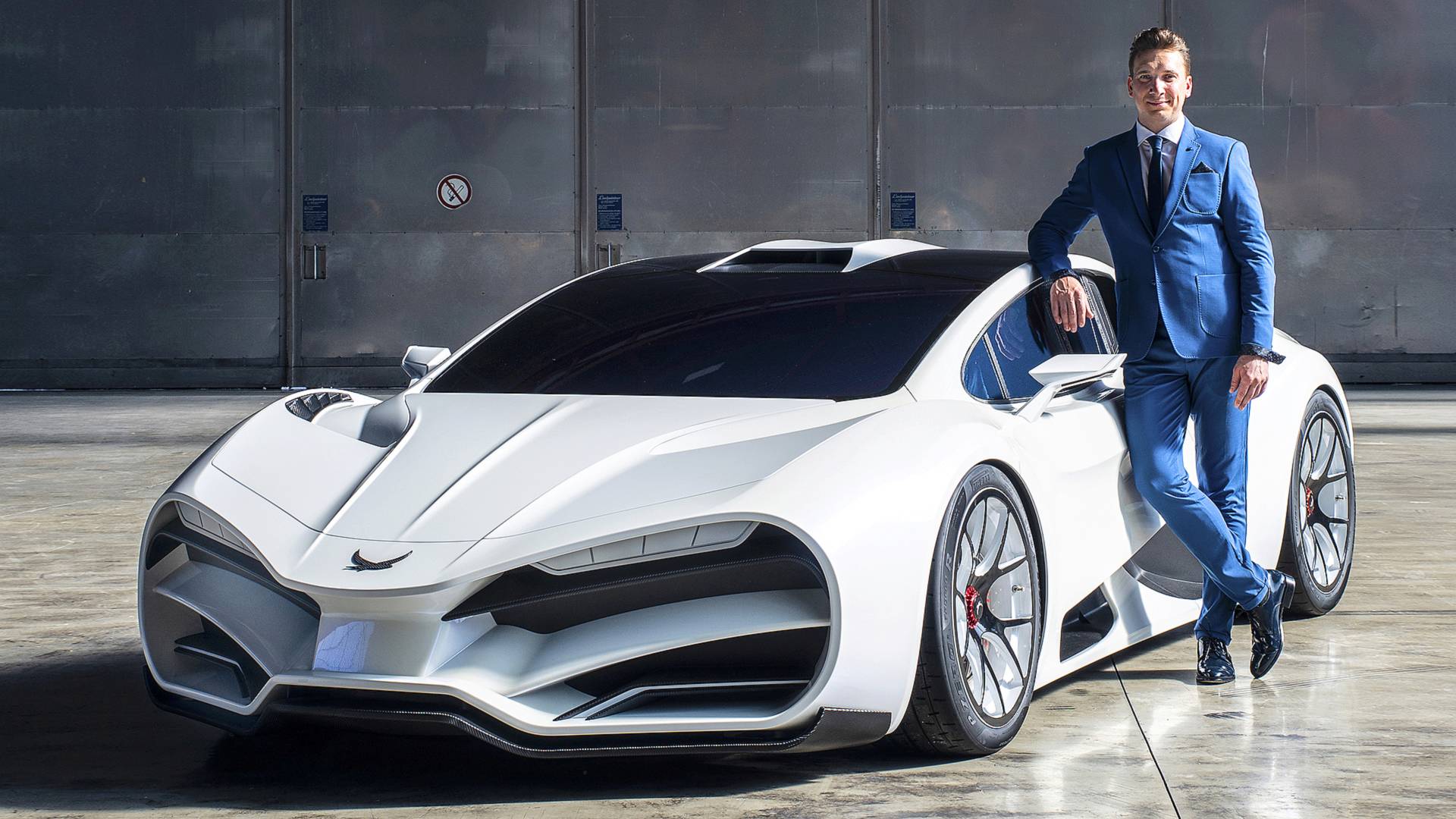
With over 1,000 horsepower and a claimed top speed of 249 mph, the Milan Red hypercar sounded too good to be true. Apparently it was. Milan Automotive founder and CEO Markus Fux has been sentenced to four years in prison for fraud, Austrian newspaper Kurier reports.
Milan Automotive burst onto the scene in 2018 with a hypercar designed to take on the likes of Bugatti and Koenigsegg. Named after a bird of prey, the Milan Red boasted a 6.2-liter quad-turbocharged V8 engine making a claimed 1,307 hp and 1,303 pound-feet of torque. Power was supposed to be sent to the rear wheels through a seven-speed, dual-clutch transmission.
Intensive use of carbon fiber kept curb weight down to a claimed 2,866 pounds. That would allow the Milan Red to do zero to 62 mph in 2.4 seconds, reach 186 mph from a standstill in 9.9 seconds, and achieve a top speed of 249 mph, according to the company.
With figures like those, it’s not surprising that Fux quickly found some takers for the Milan Red. Even with a price tag of $2.3 million, in July 2018 the company said it had 18 reservations, out of a total production run of 99 cars. Then things unraveled.
Fux, a former racing driver, collected money from investors to finish development of the car, but prosecutors claim that cash was never used for the Milan Red. The company filed for bankruptcy in early 2019, according to Kurier. Speaking to the newspaper, Philipp Wolm, Fux’s lawyer, said money from investors was used to pay Milan Automotive’s bills. But the company couldn’t attract enough investment to stay in operation, Wolm said.
The charges against Fux were originally expected to carry a sentence of seven to 10 years in prison, according to Kurier. The prosecution has filed an appeal because it considers the four-year sentence too lenient, according to the newspaper.
It’s much easier to design a cool car than it is to get it into production. While not officially dead, hypercars such as the SSC Tuatara and Hennessey Venom F5 continue to languish in development hell years after their unveilings. Little has been heard of the Devel Sixteen or W Motors Lykan Hypersport since those cars were revealed. It’s not just makers of hypercars either: Faraday Future has struggled to get its FF 91 electric SUV into production due to financial instability.


